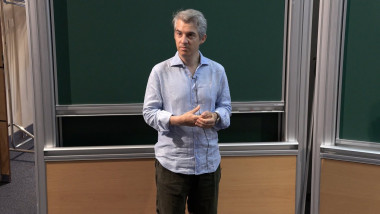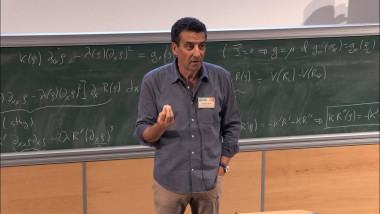Apparaît dans la collection : 2016 - T1 - WS5 - Secrecy and privacy theme
This talk surveys fundamental limits for the problem of generating secret key (SK) for two or several parties, i. e. , common randomness concealed from an eavesdropper. The largest rate at which SK can be generated, using resources specified by a given model such as correlated randomness and permissible communication, is the SK capacity of that model. Attention will be restricted to models that admit the eavesdropper listen to but not interfere with the communication of the legal parties. The (strong) SK capacity will be established for several two-party and multi-party models of this kind. We focus on models where the providers of correlated randomness are memoryless sources or channels, but give hints also to models involving general sources or channels. Conclusive results are available primarily for models where the adversary has no other information than the communication she observes. Achievablity results are proved via the familiar two-step approach: First, common randomness is generated not requiring secrecy, and in the next ‘‘privacy amplification’’ step a (deterministic) extractor is applied to yield a function of this common randomness concealed from the eavesdropper in a strong sense. Converse results are proved via formal manipulations of information quantities, using the Csisz'ar-K"orner sum identity.
















